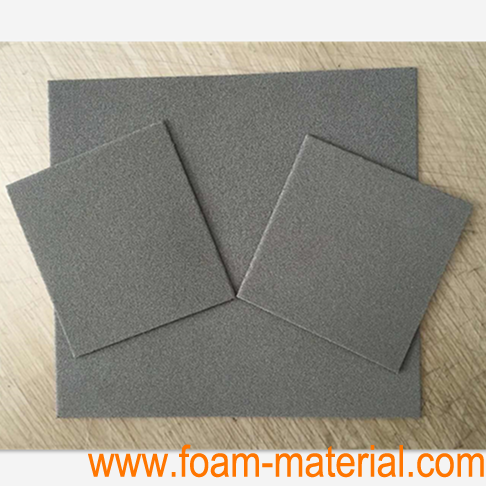Cobalt foam is a porous material that is made from cobalt metal. It possesses unique properties and finds applications in various industries. Here is some information about cobalt foam:
1.Production Process: Cobalt foam can be produced through several methods, including the replica technique, powder metallurgy, and electrodeposition. These processes involve creating a template, such as a polymer or carbon structure, and filling it with molten cobalt or cobalt powder. The template is then removed, leaving behind the cobalt foam structure.
Porosity and Structure: Cobalt foam has a highly porous structure with interconnected pores. The porosity can be tailored to meet specific requirements, typically ranging from 60% to 90%. The foam structure provides a large surface area and enhances properties such as mechanical strength and thermal conductivity.
2.Properties and Advantages:
Lightweight: Cobalt foam is lightweight, which makes it suitable for applications where weight reduction is essential, such as aerospace and automotive industries.
High Porosity: The high porosity of cobalt foam enables excellent permeability to gases and liquids, making it useful in filtration and catalytic applications.
Thermal and Electrical Conductivity: Cobalt foam exhibits good thermal conductivity, allowing for efficient heat transfer. It also possesses reasonable electrical conductivity, enabling its use in electrical and electronic applications.
Mechanical Strength: Despite its porous structure, cobalt foam retains sufficient mechanical strength, making it suitable for structural and load-bearing applications.
Chemical Stability: Cobalt foam demonstrates good chemical stability, with resistance to corrosion and oxidation.
Applications:
3.Energy Storage:
Cobalt foam can be used as an electrode material in energy storage devices such as lithium-ion batteries and fuel cells, enhancing their performance and efficiency.
Catalyst Support: The high surface area and porosity of cobalt foam make it an excellent support material for catalysts in chemical reactions, including hydrogenation, oxidation, and Fischer-Tropsch synthesis.
Heat Exchangers: The thermal conductivity of cobalt foam makes it ideal for heat exchangers and cooling systems, where efficient heat transfer is crucial.
Filtration: Cobalt foam's porous structure allows for effective filtration of gases and liquids, making it suitable for applications in air and water filtration systems.
4.Biomedical: Cobalt foam has potential in biomedical applications, such as tissue engineering scaffolds and drug delivery systems.
In conclusion, cobalt foam is a versatile material with unique properties that make it valuable in various industries. Its lightweight, high porosity, thermal conductivity, and mechanical strength enable its use in energy storage, catalysis, heat exchangers, filtration, and biomedical applications. Continued research and development in cobalt foam technology hold the potential for further advancements and novel applications in the future.
Relevant metal foam products: Aluminum foam, Cu Foam, Nickel Foam, Iron Nickel Foam, Stainless Steel Foam
